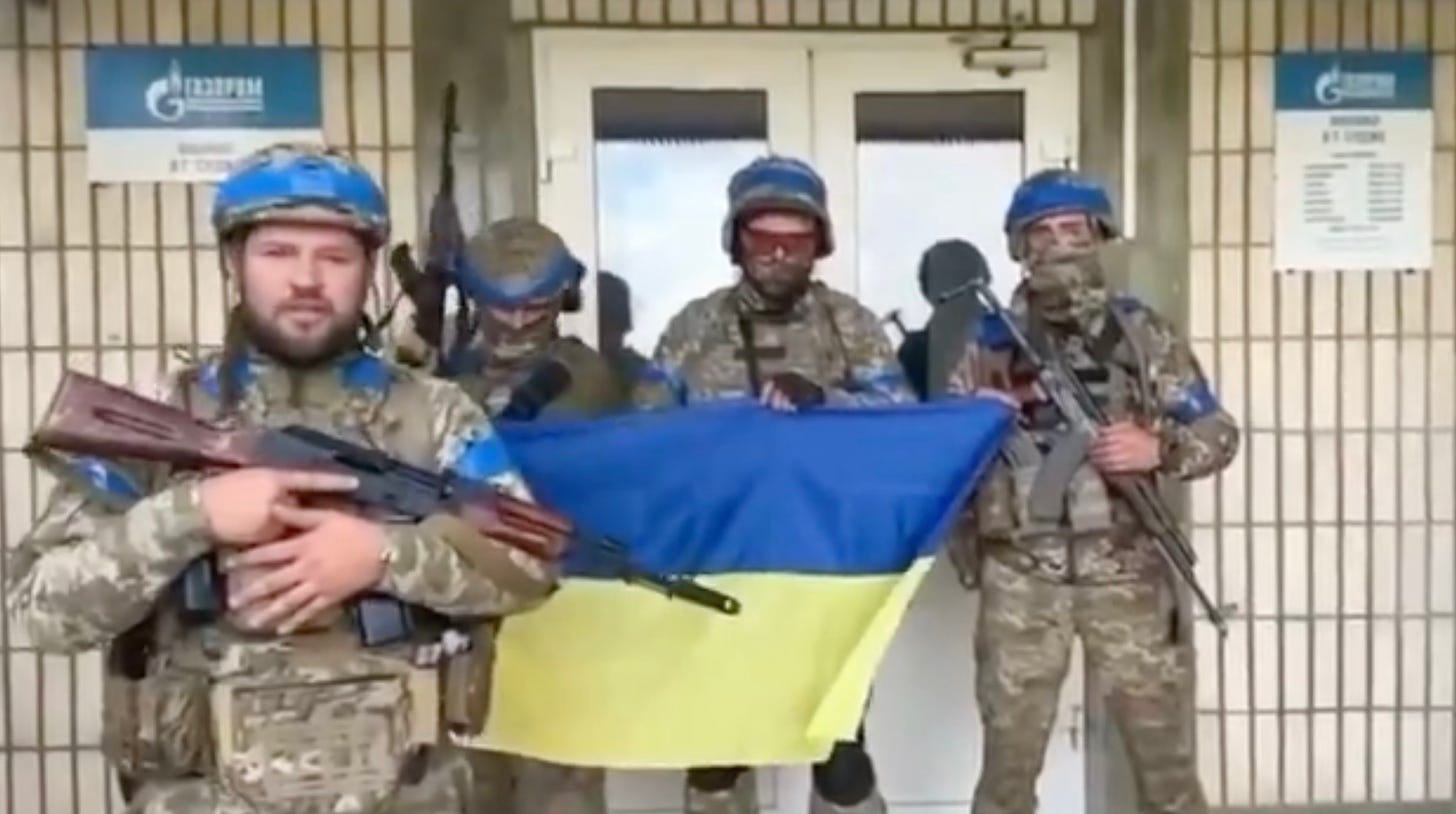Surprise Attack in Kursk
How Did Ukraine Surprise Russia…Again?
Surprise lies at the foundation of all undertakings without exception, only in very different degrees according to the nature of the undertaking and other circumstances. Clausewitz, On War, Book 3, Chapter IX
As a principle of war surprise is a combat multiplier that amplifies the effects of the other principles of war. Its effective use allows friendly units to strike at a time and place or in a manner that the enemy is unprepared for, which induces shock and causes hesitation. US Army Tactics Manual 2023
The past few days in Ukraine have demonstrated, yet again, how surprise plays a major role in human competition and conflict. Regardless of the many technological developments which might inform or speed up decision-making in military and national security endeavours, surprise is an enduring feature of war.
Achieving surprise means that one can execute a plan that is unexpected by the enemy. Whether achieved through physical or virtual approaches, surprise generates a cognitive effect in one’s adversary. This feeling of perplexity, shock, and uncertainty in individuals as well as in teams, is designed by those seeking to achieve surprise to undermine an enemy’s cohesion and morale.
Soldiers, citizens and politicians have been surprised, consistently, over thousands of years of history. The writings of ancient historians such as Thucydides, Polybius, and Herodotus contain examples of nations or city states achieving victory by employing surprise, ruses and deception.
British military officer and military theorist J.F.C. Fuller wrote extensively on surprise as one of his most important principles of war. In his 1926 book, The Foundations of the Science of War, Fuller described surprise as having mental, moral and/or physical dimensions. He wrote in The Foundations of the Science of Warthat:
In war, surprise is omnipresent, wherever man is there lurks the possibility of surprise. If he wishes to understand war, (he) must examine the nature of surprise in its thousand and one forms. Surprise should be regarded as the soul of every operation.”
In the past century, surprise (or at least the attempt at surprise) was foundational in the operations of the belligerents in all major wars. Pearl Harbor, Korea, the Arab attacks on Israel in 1973, the 9/11 attacks on America and the 7 October 2023 Hamas attacks on southern Israel feature examples of the successful achievement of surprise in modern conflict.
Surprising the opponent is an important method of seizing the initiative on the battlefield or at the strategic level. But the impacts of surprise are transient. As such, exploitation must be executed quickly against surprised – and shocked – enemy forces before they can regain coherency in their command and control and respond effectively. Military operations demand not just one but a succession of surprises. As the Russians are discovering, with their reinforcement convoys being ambushed on the way to Kursk, the initial surprise attack is just the first of a series of compounding surprises at the different levels of war.
The aim of this article is to explore surprise in modern war, in particular, the role it has played during the war in Ukraine since 2022. Importantly, I explore here just how the Ukrainians were able to deceive the Russians in the lead up to the Kursk operation this week and achieve such a stunning military surprise.


Nenhum comentário:
Postar um comentário
Comentários são sempre bem-vindos, desde que se refiram ao objeto mesmo da postagem, de preferência identificados. Propagandas ou mensagens agressivas serão sumariamente eliminadas. Outras questões podem ser encaminhadas através de meu site (www.pralmeida.org). Formule seus comentários em linguagem concisa, objetiva, em um Português aceitável para os padrões da língua coloquial.
A confirmação manual dos comentários é necessária, tendo em vista o grande número de junks e spams recebidos.